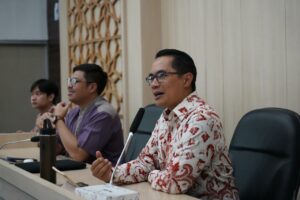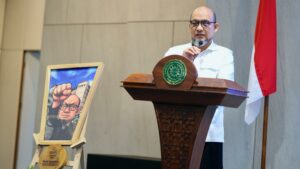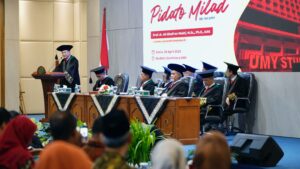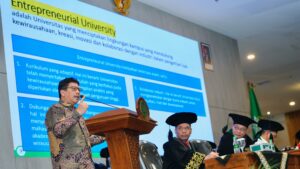 Mount Merapi in Yogyakarta is currently in the status of Alert Level III, which means that it has a high probability of erupting. As we know, the consequences of an eruption includes the loss of life and other such impacts that can be felt by the community, such as economic, social, and physical impacts. The state has an obligation to restore the rights of citizens after a disaster, especially for residents around the slopes of the mountains so that they can return to their original life.
Mount Merapi in Yogyakarta is currently in the status of Alert Level III, which means that it has a high probability of erupting. As we know, the consequences of an eruption includes the loss of life and other such impacts that can be felt by the community, such as economic, social, and physical impacts. The state has an obligation to restore the rights of citizens after a disaster, especially for residents around the slopes of the mountains so that they can return to their original life.
This problem led to a community service program conducted by three lecturers at Universitas Muhammadiyah Yogyakarta consisting of Assoc. Prof. Iwan Satriawan, Ph.D., Prof. Agus Setyo Muntohar, Ph.D., and Assoc. Prof. Sunarno, Ph.D., in the form of a Partner Village Development Program (PPDM) in Donoharjo Village, Ngaglik District, Sleman Regency, D.I.Yogyakarta.
Iwan, who is also a lecturer at the UMY Faculty of Law, conveyed the results of his discussion in a parallel session of Community Service Webinar 3 which was broadcast virtually through the UMYogya Youtube channel on Wednesday (11/11). “The aim is to provide education and understanding to the public regarding what citizens’ rights must be fulfilled by the state after a disaster based on the 1945 Constitution,” he said.
Meanwhile, after counseling was carried out in Donoharjo village by the UMY community service team, it was found that many people still did not know about disaster knowledge, disaster regulations, disaster management actions, and the constitutional rights of disaster-affected citizens. “Those are the four indicators of this service program, so disaster regulation is indeed important because people need to know what should and should not be done in dealing with disasters, especially for people around the slopes of Merapi,” continued Agus, a lecturer in UMY Civil Engineering.
Actually, Indonesia already has adequate instruments for the disaster management process, as it has legal protection as well as a special agency that can handle it. “The most important thing is how citizens can fulfill their rights as stated in Law No.24 of 2007 regarding disasters. And disaster management cannot be separated from political intervention,” said Agus. (Hbb)






